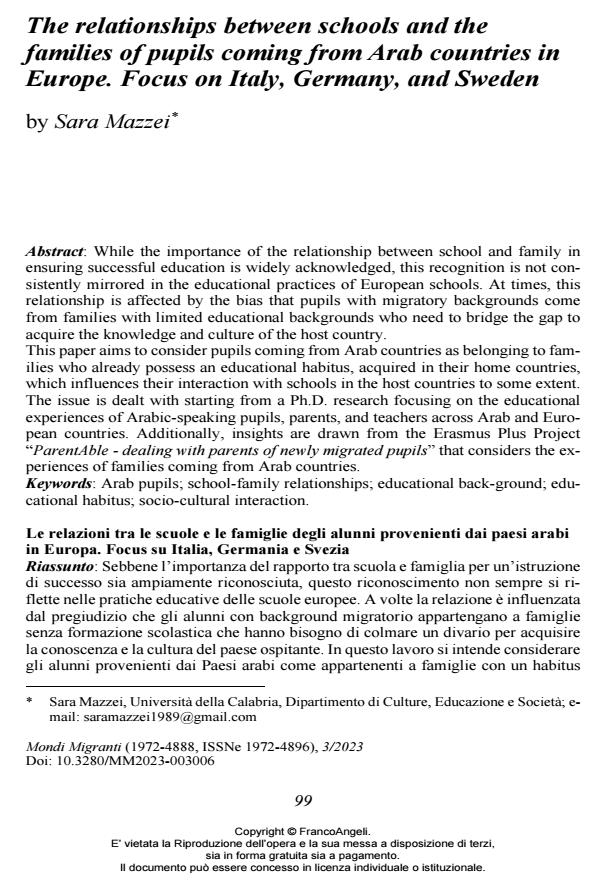The relationships between schools and the families of pupils coming from Arab countries in Europe. Focus on Italy, Germany, and Sweden
Journal title MONDI MIGRANTI
Author/s Sara Mazzei
Publishing Year 2023 Issue 2023/3
Language English Pages 16 P. 99-114 File size 244 KB
DOI 10.3280/MM2023-003006
DOI is like a bar code for intellectual property: to have more infomation
click here
Below, you can see the article first page
If you want to buy this article in PDF format, you can do it, following the instructions to buy download credits

FrancoAngeli is member of Publishers International Linking Association, Inc (PILA), a not-for-profit association which run the CrossRef service enabling links to and from online scholarly content.
While the importance of the relationship between school and family in ensur-ing successful education is widely acknowledged, this recognition is not con-sistently mirrored in the educational practices of European schools. At times, this relationship is affected by the bias that pupils with migratory backgrounds come from families with limited educational backgrounds who need to bridge the gap to acquire the knowledge and culture of the host country. This paper aims to consider pupils coming from Arab countries as belonging to families who already possess an educational habitus, acquired in their home countries, which influences their interaction with schools in the host countries to some extent. The issue is dealt with starting from a Ph.D. research focusing on the educational experiences of Arabic-speaking pupils, parents, and teach-ers across Arab and European countries. Additionally, insights are drawn from the Erasmus Plus Project “ParentAble - dealing with parents of newly migrated pupils” that considers the experiences of families coming from Arab countries.
Keywords: Arab pupils; school-family relationships; educational back-ground; educational habitus; socio-cultural interaction.
Sara Mazzei, The relationships between schools and the families of pupils coming from Arab countries in Europe. Focus on Italy, Germany, and Sweden in "MONDI MIGRANTI" 3/2023, pp 99-114, DOI: 10.3280/MM2023-003006